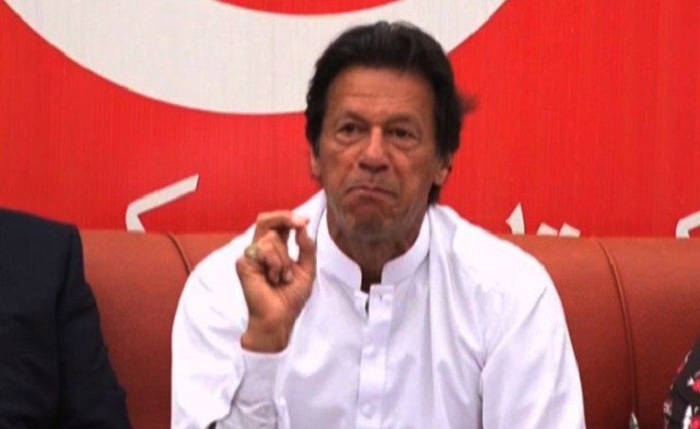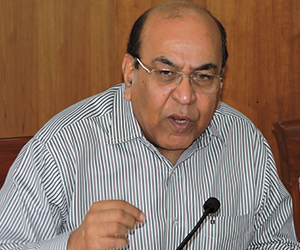Whoever heard Pakistan’s Prime Minister (Designate) Imran Khan speak on 26 Jul 2018, after it became quite evident that the election had gone his way, would have had to change his image in the mind’s eye to make any sense of it at all. We have seen him in India over the years in friendlier times. The flamboyant playboy image, his strong competitiveness and hugely India friendly leaning signified his personality. Those were the days when people wondered why the attitude of Imran Khan could not be replicated by the establishment in Pakistan which was always unfriendly. It is now becoming quite clear to all, that in order to be high in the pecking order in Pakistan, you just have to simply change your colors much like the chameleon. In Imran’s case that change over became a makeover; his entire personality has undergone a change as against the other mainstream faces such as Nawaz Sharif and Bilawal Bhutto.
The Pakistan Army, which exercises control over the destiny of Pakistan in many ways, realised that its sojourn with the first two mainstream political parties - the Pakistan People’s Party (PPP) and the Pakistan Muslim League- Nawaz (PML-N) - was over. The reason for this was the apparent emboldening of their leaders with passage of time and attempts to seek an independent line, mostly on the relationship with India. For Pakistan Army, Imran Khan’s Pakistan Tehree-e-Insaf (PTI) Party, young in comparison and freshly in power in Khyber Pakhtunkhwa (KPK), appeared to have all the boxes ticked as far as national power potential was concerned. Any party so sponsored would obviously be beholden to the sponsor. For the last three years or more the buildup of PTI had been underway.
For Imran Khan’s personal survival a makeover to an Islamist image was necessary, in addition to the nationalist image already in existence due him being the Captain of Pakistan’s Cricket World Cup winning team. In the recent past he has often been referred as Taliban Khan and Jihadi Khan after he helped paralyse the city of Islamabad a few times to protest corruption in the then existing PML-N government. Whether the Pakistan Army actively connived with the Pakistan Election Commission to have the PTI come to power may eventually become inconsequential because a very appropriately orchestrated result has come to be. The PTI is there and yet not; it will need support of some parties to make a government. The stability would have been much higher if the PTI had scored a full victory but that may have emboldened it a little too early. In other words, the control of the deep state over Imran Khan is complete.
Given the above situation does anyone in India perceive better times ahead as far as Indo-Pakistan relations are concerned? Slivers of hope have arisen in the recent past. The arrival of General Qamar Bajwa as Pakistan’s Army Chief a year and a half ago sent some positive signals. He was known to be well educated and someone who could understand the larger interests of Pakistan in peace with India in order to resolve Pakistan’s far more serious social and economic problems. However, that perception did not translate into anything substantial despite a much hyped Bajwa Doctrine. The buildup to the Pakistan election of 2018 was arranged by Pakistan Army’s near-total connivance with the higher judiciary and a subjugated media to prevent the PML-N returning to power, because the latter was straining at the leash to be allowed free hand in the conduct of its India policy. With Imran therefore, nothing is likely to change. Mindsets and history do not allow changes to occur, only circumstances do. So its circumstances that has either to be created or has to come about through trends and events that will change the way in relations are conducted. What could, if at all, these changes possibly be?
One is a possible outreach by India as a fresh initiative. With nine months to another hotly contested general elections in 2019, this is highly unlikely. The National Democratic Alliance (NDA) Government had earlier made an honest attempt, and in fact took the proverbial two steps that Imran Khan spoke of in his recent speech, without receiving even one step in response. Any softening of approach towards Pakistan as an Indian initiative is therefore highly unlikely.
Two, can Imran Khan take the initiative? Given the fact that he is shackled under Army control, makes that least likely. Assuming that he does, the approach that he displayed in his initial speech, of addressing Kashmir as the core issue and accusing the Indian Army of serious human rights violations, is unlikely to create even an iota of the positive environment which would be necessary for India to walk the extra mile, even in a longer time frame.
Three, could be a set of circumstances dictating Pakistan’s internal situation which could trigger a forced policy change and eventually lead to the creation of a better environment. This refers to the Financial Assistance Task Force (FATF) related strictures against Pakistan asking it to set right its internal mechanisms to prevent financial support to terror networks. With Pakistan’s economy in a mess and two billion dollar relief packages already given by China, Pakistan will at some stage need to display more transparency in the measures that it has to undertake to prevent sponsoring of terror. That calls for a proactive Indian approach to ensure that it does. It will need diplomatic initiatives and influencing of the right quarters to ensure that Pakistan’s counter-measures include the India centric jihadi elements that it treats as its strategic assets. The election has produced one positive situation – the relative political marginalisation of the India focused jihad groups. Hafiz Sayeed and his Milli Muslim League, riding atop Allah-o-Akbar Tehreek Party, scored no victories. Can this be exploited or more importantly will the Pakistan deep state allow the placement of these assets in cold storage, at least temporarily. Relative control over these elements could create an environment free of jihadi oriented violence and any major attempts to target India.
The fourth element among these circumstances is the role of China. For many years, Pakistan’s emboldened stance of taking on India through the hybrid conflict route has been possible because of the backing from China. It then suited China too. However, 2017-18 have been eventful years in Sino-Indian relations, with its peaks and troughs. The reset in place after Wuhan, Sochi and Qingdao is yet underway and China may well view an improved Indo-Pakistan relationship as beneficial to its larger international interests. Under those circumstances China’s initiative could go far in setting the environment for an improved Indo-Pakistan relationship.
The bottom line Indian requirement that will see any breakthrough is a set of measures by Imran Khan’s Pakistan that will place controls over the anti-India jihadi groups in Pakistan. It has to be a verifiable set of measures with meaningful statements in the diplomatic environment. A quiet Line of Control over an elongated period of time will assist in pegging any process which comprises all this.
Interestingly, a question being asked is whether Prime Minister Narendra Modi should accept Prime Minister (Designate) Imran Khan’s possible invitation to attend his swearing-in in the near future. There are no easy answers to this and the Indian Government will have to seriously consider the issue. Possibly, with nine months to the own general elections and no Pakistani assurance of any follow up diplomatic initiatives, which any way will be in the hands of the Pakistan Army, Mr Modi would stand to lose face. He had tried one transformational moment on 25 Dec 2015 which came cropper; a second one for no foreseeable gains will not fetch him or India any dividends. Perhaps India’s Minister of External Affairs, Mrs Sushma Swaraj could be an ideal personality to attend the ceremony.
(The paper is the author’s individual scholastic articulation. The author certifies that the article/paper is original in content, unpublished and it has not been submitted for publication/web upload elsewhere, and that the facts and figures quoted are duly referenced, as needed, and are believed to be correct). (The paper does not necessarily represent the organisational stance... More >>
Image Source: https://www.newspakistan.tv/wp-content/uploads/2016/04/Imran-Khan-Presser-Isb-Pkg-01-04-680x417.jpg










Post new comment